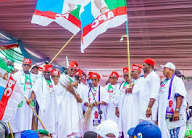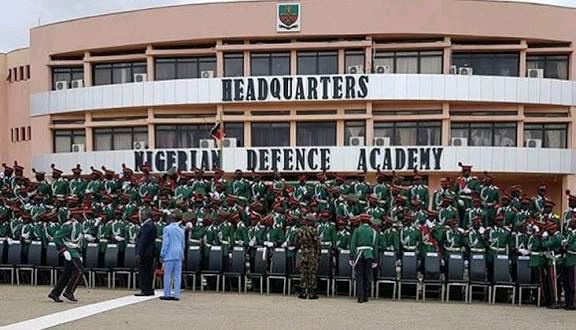West, Central Africa Lack Capacity to Implement Advanced Customs Procedures, Says Adeniyi

To
Comptroller-General of the Nigeria Customs Service (NCS), Adewale Adeniyi, has raised concerns over the lack of adequate capacity in West and Central African countries to effectively implement advanced customs procedures.
Speaking at a recent conference in Abuja, Adeniyi blamed the absence of robust digital infrastructure as a major impediment to streamlining customs operations across the region.
Adeniyi pointed out several technical challenges hindering progress, including limited interconnectivity between national customs systems. This lack of seamless communication obstructs effective information sharing and the smooth processing of trade declarations.
Furthermore, he emphasized the region’s deficiency in the technical expertise required to implement sophisticated customs procedures such as post-clearance audits and Authorized Economic Operator (AEO) programs.
“We (WCA) have challenges in effectively implementing technical aspects of the African Continental Free Trade Area (AfCFTA) rules of origin and other trade facilitation instruments,” Adeniyi stated. He also identified “technical barriers to implementing coordinated border management with other regulatory agencies, fragile borders, and the fast-paced evolution of e-commerce” as significant hurdles.
The Customs boss warned that these challenges are negatively impacting both trade facilitation and revenue collection within the West and Central African region. However, he expressed optimism that these issues could be overcome through targeted technical support and strategic partnerships.
Adeniyi proudly noted that Nigeria has made considerable strides in addressing some of these challenges through focused reforms. “Our experience offers valuable insights into the impact of targeted modernization initiatives,” he said.
The Customs boss also cited the successful deployment of the indigenously developed B’Odogwu platform, which has enhanced Nigeria’s digital capabilities for customs processing. Additionally, he mentioned the establishment of technical interfaces with other government agencies involved in trade, facilitating coordinated border management, and the ongoing deployment of advanced scanners at major ports to significantly enhance non-intrusive inspection capabilities.
Highlighting Nigeria’s commitment to capacity building, Adeniyi revealed that over 5,000 customs officers have received specialized training in technical areas such as valuation, classification, rules of origin, and post-clearance audits. He stated that these interventions have led to reduced clearance times, a remarkable 90 percent increase in revenue collection (exceeding targets by 20 percent), and improved compliance rates.
The Comptroller-General outlined five key initiatives requiring support from development partners:
Regional Interconnectivity: Enhancing digital links between customs systems in the region.
Competency-Based Human Resource Management System: Developing skilled customs personnel.
Technology-Driven Illicit Trade Detection: Utilizing technology to combat smuggling and other illicit activities.
AfCFTA Implementation Support: Providing technical assistance for the effective implementation of the free trade agreement.
Regional Single-Window Integration: Establishing a unified platform for trade-related information and procedures.
Adeniyi urged a collaborative approach to tackle the challenges facing customs operations in the region, calling on participants at the conference to propose practical and scalable solutions rooted in local capacity building.
Nigeria’s Minister of Finance and Coordinating Minister of the Economy, Wale Edun, affirmed that the conference aligns with the federal government’s agenda to mobilize resources for programs aimed at improving customs operations in the region.
He emphasized the forum as a platform for countries to outline their priorities and reinforce their commitments to the transparent and effective use of donor resources.
World Customs Organisation (WCO) Secretary-General, Ian Sanders, represented by Ebenezer Tafili, Deputy Director of the WCO’s Capacity Building Directorate, stated that the conference aims to strengthen engagement between customs administrations and development partners. He added that the event also seeks to raise awareness among customs authorities regarding the priorities and strategies of donors and attract funding for their implementation.









